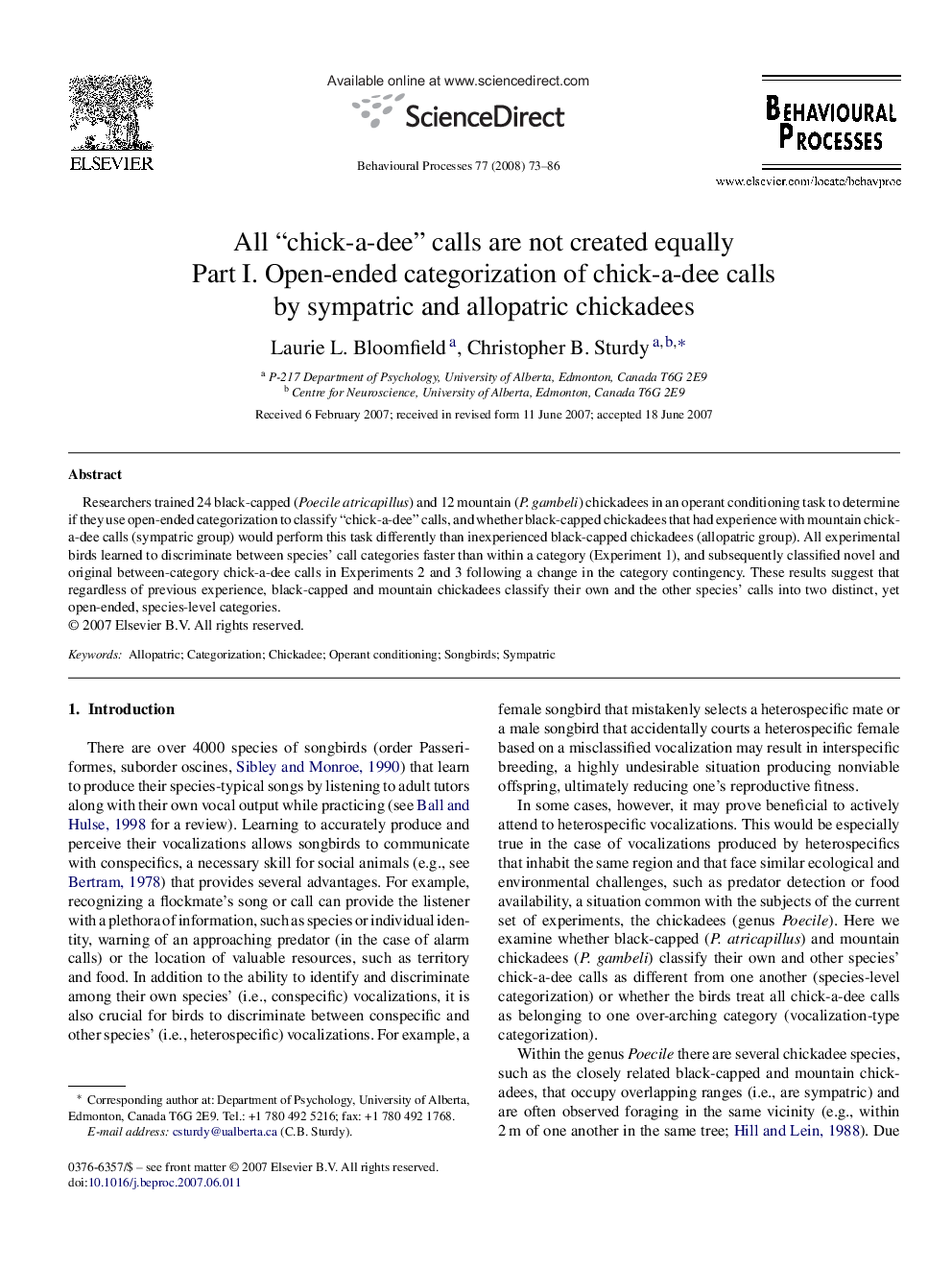| Article ID | Journal | Published Year | Pages | File Type |
|---|---|---|---|---|
| 2427705 | Behavioural Processes | 2008 | 14 Pages |
Researchers trained 24 black-capped (Poecile atricapillus) and 12 mountain (P. gambeli) chickadees in an operant conditioning task to determine if they use open-ended categorization to classify “chick-a-dee” calls, and whether black-capped chickadees that had experience with mountain chick-a-dee calls (sympatric group) would perform this task differently than inexperienced black-capped chickadees (allopatric group). All experimental birds learned to discriminate between species’ call categories faster than within a category (Experiment 1), and subsequently classified novel and original between-category chick-a-dee calls in Experiments 2 and 3 following a change in the category contingency. These results suggest that regardless of previous experience, black-capped and mountain chickadees classify their own and the other species’ calls into two distinct, yet open-ended, species-level categories.
